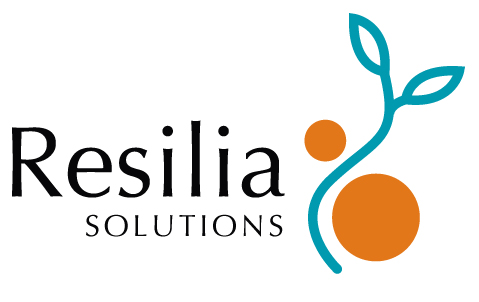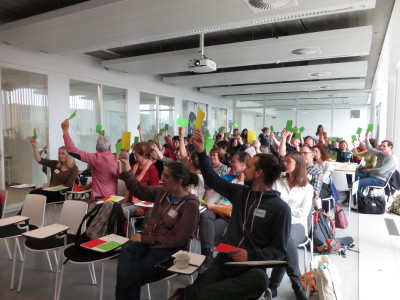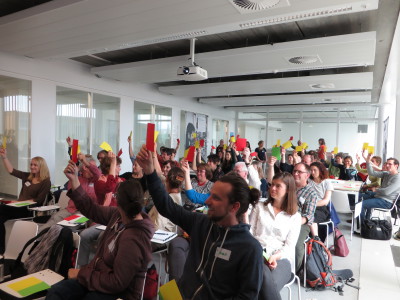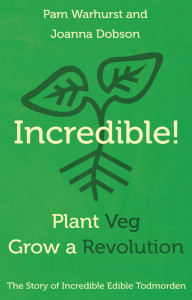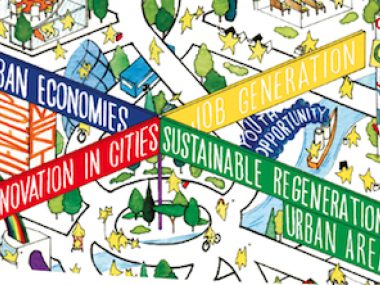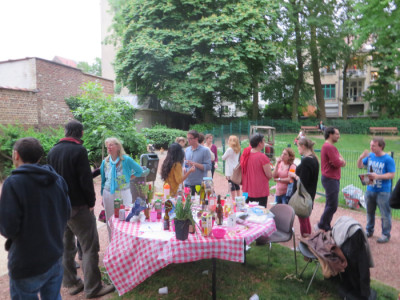
Two years ago, I launched a citizen initiative in a park close to where I live. My motivations were to act as a responsible and engaged citizen – as I had been working on this field for quite some time – and to experiment moving from a passive attitude to an active one: the park seemed to be abandoned from the City Council, it looked really dodgy and I became scared of going there to throw away my compost. After having read the book on the Incredible edible, I thought to myself that I could maybe become an actor of change. That was the beginning of a personal transformation, learning about what makes citizen activism possible and pushing city administrations to evolve.
Continue reading